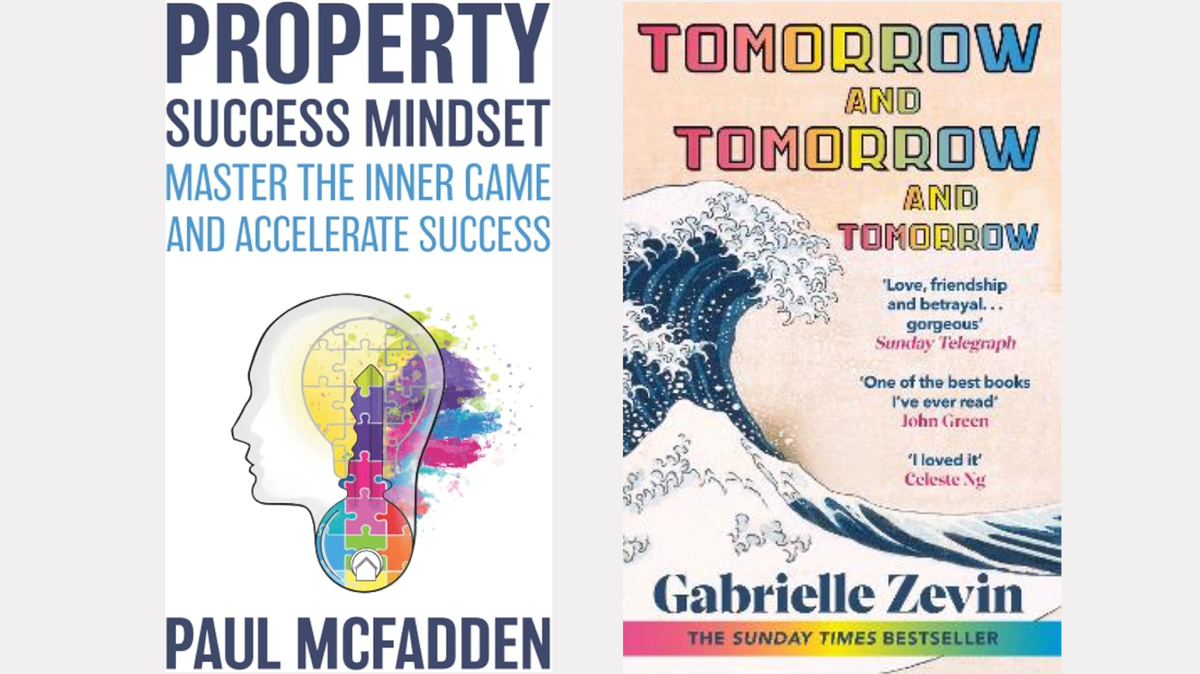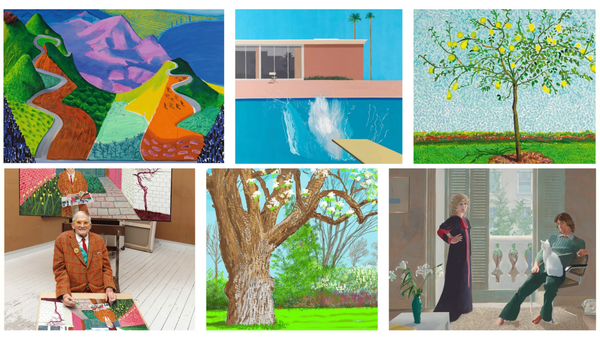Success, Resilience and the Promise of Tomorrow
This month, I've explored the powerful intersection of success and resilience, drawing inspiration from Paul McFadden’s Success Mindset and Gabrielle Zevin’s Tomorrow and Tomorrow and Tomorrow.

Property Success Mindset by Paul McFadden
Reading Property Success Mindset by Paul McFadden was an eye-opener in understanding the mindset behind success in property investment. McFadden focuses on the mental and emotional aspects of achieving wealth through property, making it clear that knowledge alone isn't enough—your mindset plays a crucial role. What stood out to me was his emphasis on overcoming limiting beliefs and developing resilience, which is just as important as mastering the technical side of real estate.
One of the key lessons from the book is that success in property investment isn’t just about finding deals or understanding the market—it’s about cultivating the right mental approach. McFadden explains that many people are held back by fear, doubt, or a lack of confidence, and he offers practical strategies to shift that mindset. He stresses the importance of thinking long-term, maintaining focus, and being willing to take calculated risks, which are essential traits in the unpredictable world of property investment.
McFadden also covers the importance of building strong habits and surrounding yourself with the right people. He talks about how successful investors don’t just rely on luck or market trends; they consistently work on improving their mindset, networking with like-minded individuals, and seeking mentorship. This focus on personal development and mindset growth is what sets this book apart from many other property guides that mainly cover tactics or market analysis.
Overall, Property Success Mindset provides valuable insights for anyone interested in property investment, but its teachings can apply to any entrepreneurial venture. The book challenges you to look beyond the practicalities of investing and focus on developing the mental toughness, vision, and determination needed to achieve long-term success. For me, McFadden’s message is clear: mastering your mindset is the foundation for mastering the property game.
Tomorrow and Tomorrow and Tomorrow by Gabrielle Zevin
Tomorrow and Tomorrow and Tomorrow by Gabrielle Zevin is a deeply moving novel about creativity, friendship, and the complexities of human relationships. What I found particularly captivating is how the story uses the world of video game design as a backdrop to explore deeper themes of connection and collaboration. At the heart of the book is the friendship between Sam and Sadie, who meet as children and reconnect later to create video games together. Their partnership is beautifully complex, filled with both love and tension, as they navigate the challenges of working closely on something they are both deeply passionate about.
One of the key takeaways from the novel is how art and creativity can serve as both a form of escape and a means of expressing deeper truths about life. Sam and Sadie’s game designs reflect their emotional struggles, desires, and the way they see the world. The novel invites readers to think about how we tell stories, not just through words, but through all forms of media, and how those stories can shape both creators and players alike.
Another striking element of the book is its meditation on time, second chances, and the power of play. The title itself, borrowed from Shakespeare’s Macbeth, alludes to the idea of repetition and renewal. The characters, much like in a video game, face multiple setbacks, conflicts, and losses, but they are given the chance to "start again," both in life and in their creative endeavours. This theme really made me reflect on the resilience needed in both relationships and the creative process.
Overall, Tomorrow and Tomorrow and Tomorrow is not just a novel about video games—it’s a profound exploration of human connection, ambition, and the complexities of collaboration. Zevin’s characters are deeply flawed, but that makes them all the more real and relatable. The novel left me thinking about how creativity can be a form of healing, and how the stories we create—whether in games, books, or other mediums—can help us make sense of the world and our place in it.





